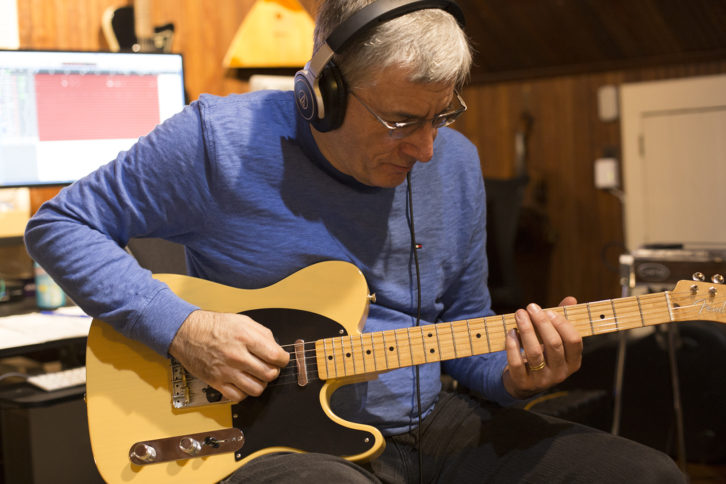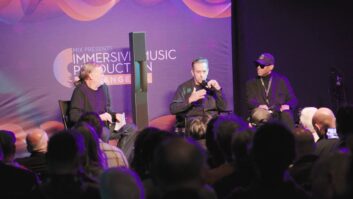Back in November, Coldplay announced that they were holding off on touring for their new album, Everyday Life, until they can figure out how to put on shows that are not only carbon neutral but actively beneficial to the environment. Other groups, including Green Day, Pearl Jam, the Architects and many others, have engaged in efforts to educate their fans about climate change or raise money for environmental causes.

In other facets of the music industry, you can find studios and manufacturers who are also going above and beyond to be as green as possible. A couple of examples recently came across my desk. First, Guilford Sound, a recording studio in Guilford, Vermont, that was built from the ground up to be green, recently upgraded its solar array and geothermal heating infrastructure.
“On a good sunny day, we make a solid 30 kilowatts,” says owner/engineer Dave Synder. “If you look at a whole year, we’re basically covering all of our usage. We felt compelled and inspired to fulfill that aspect of this dream, which is to have this beautiful studio that also runs efficiently.”
Snyder said another upgrade will be motion sensors in the various rooms of the studio that automatically shut off heat or air conditioning when nobody is in there. And those are just some of the green features at Guilford Sound.
Read more Mix Blog Studio: The 7 Phases of Gear Lust.
The other item I saw was about Vicoustic, a Canadian manufacturer of acoustic materials. The company has switched to using a primary raw material for its acoustic panels called VicPET Wool, made from 65% recycled plastic.
According to the press release, “Producing acoustic solutions in an environmentally conscious way has been at the forefront of Vicoustic’s mind, gradually replacing foam-based products with VicPET Wool, leading the way for the use of sustainable materials.”
Although my own actions in my studio are not as consequential as that of a studio like Guildford Sound or a manufacturer like Vicoustic, I still try to do what I can. I use as little power as possible, and turn off most of the gear when it’s not in use. I’m careful about recycling plastic and paper and even recycle my guitar strings.
There’s something satisfying about doing one’s part to help save the planet, even though the really consequential actions to mitigate climate change and other environmental issues must come from governmental action.
While we wait, hope and call for such large-scale solutions, actions like the ones taken by Coldplay, Guilford Sound and Vicoustic help raise our collective consciousness about the issues we face outside of our audio world.







